I get a lot of questions from photographers new to the profession asking how to best begin their work or how to hit the ground running. Usually my answer is pretty vague (arguably unhelpful) and reads something like, “It really is to each his own. Get a good camera, take great pictures, and find a niche that fits you.”
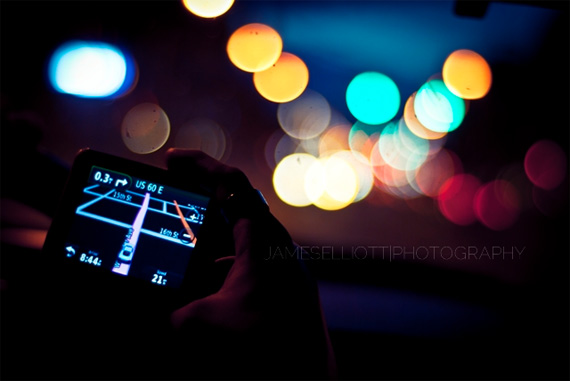
“Into the Night” captured by James Elliott
As these questions have become more and more common I’ve decided to put together a little guide to really help those of you who are just into photography or are thinking about joining the fray. Below is a list of things that will best set you off in the right direction. We’ll call it the “The Photographer’s Starter Kit.”
1. The DSLR – Your new best friend
First and foremost, you are going to want get yourself a nice DSLR. Be sure to get one that comes with a lens, most commonly it’ll be an 18-55mm, as the camera body and lens will be the bread and butter to your photography. Now don’t kid yourself; this isn’t a cheap hobby. With that being said there are some great entry-level DSLRs at reasonable prices. Then you will want to spend time learning everything there is to learn about your new camera. Don’t be afraid to pull out the manual and get acquainted. Knowing your camera means knowing your craft.
2. A Tripod – Your three-legged acquaintance
The next thing you should consider getting is a tripod. While it may not seem as important as some of the other items on the list I assure you that you’ll find yourself using it more often than not. Tripods are essential for sharp photographs in low-light or similar situations. They’re also needed for HDRs, panoramas, and pictures using a slow shutter speed.
3. A Telephoto (or zoom) Lens – Your backup
While it’s not exactly necessary, more serious photographers will eventually find themselves wanting or needing another lens. The first deviation from the kit lens should be a telephoto lens. This will open you up to a whole new world of photography that you may have not known existed. Nikon, Canon, and third party lens-makers like Sigma offer great telephoto lenses. Be careful that the lens you’re looking at is compatible with your current DSLR. As a Nikon man, I recommend the Nikon 55-300mm f/4.5-5.6G or the Sigma 70-300mm f/4-5.6 (Sigma also offers this same lens for Canon).
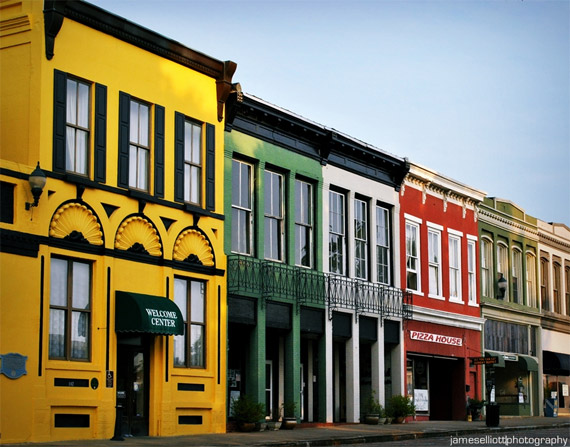
“Colors” captured by James Elliott
*Important Note: If you’re at the point where you’re acquiring new lenses and accessories then you’re also going to need something to put all this stuff in. There are tons of bags and backpacks out there, just find the one that suits your needs and price range.
4. Adobe Lightroom / Photoshop – Your digital darkroom
If you want to get the most out of your work then you’re going to need some professional software to process your images. Adobe products are the industry standard for photo processing and enhancements. Lightroom and Photoshop work hand in hand to help photographers get the very best from their photographs. It’s not necessary to have both; Lightroom serves as an advanced processing tool, allowing you to do all things from cropping, exposure adjustment, color enhancements, sharpening, and contrast adjustments, and even a bit more. Photoshop does all of the above and even more, but it is a touch more complicated to use. If you’re serious about your work, you’ll want to pick one if not both up.
5. The Internet – Your Freebie
You’re using the Internet right now. In fact you’re reading an article about improving your photography, which means you’re already heading in the right direction! This is your freebie. The Internet is filled with thousands of great photography outlets, so use them to your advantage. Take time to read some articles on improving your skills. Maybe you could improve your composition, or maybe your technical skills need some brushing up—I assure you there’s help out there.
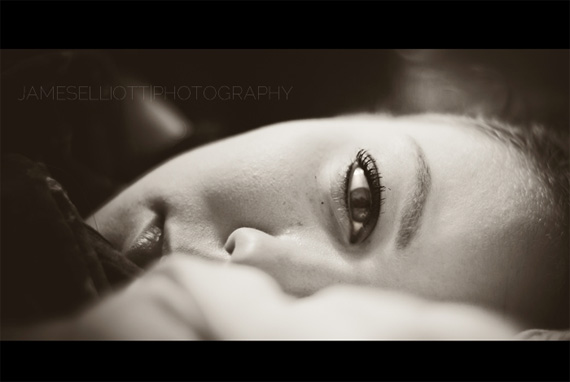
“Awake” captured by James Elliott
So that’s it—your basic starter kit for photography. Hopefully this helps you in some way, and maybe even opens the door for you to the wonderful world of photography. Good luck. Happy shooting.
About the Author:
James Elliott is an award winning photographer and creator of Through the Lens—the art and tech blog curated by himself and others. The site offers more tips, inspiring art, and featured artists.
Like This Article?
Don't Miss The Next One!
Join over 100,000 photographers of all experience levels who receive our free photography tips and articles to stay current:

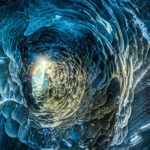



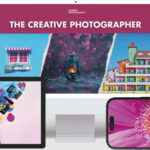
Fine advice for new would-be serious photographers. I am going to pass it on.
Comments:
– I agree about the Nikon DX 55-300. Fantastically sharp, great saturated color and easy to use. Even does well one of my ancient DSLRS: Nikon D60.
– The bargain among feature-rich photo editors is GraphicConverter 9 for ca. $40. I have never encountered anything it can’t do with an image. In addition, its ability to save an image in other formats is unsurpassed.
Thanks for the nice article. Having been a portrait and advertising photographer for 35+ years I, like you, get the question of how to start a business. I don’t encourage them, but also encourage them to find what they are passionate about in photography and find a way to do that. I started photographing buildings and interiors. It was fun and a made a little extra cash, but it wasn’t until I started doing portraits that I fell in love with that facet of photography.
I enjoy your email newsletters and try to get time to read each one, but find I have to pick and choose. Again, thanks for what you do. It takes dedication and insight to continue to be relavent. Happy New Year!
Yes, indeed, these are the basic things one needs to know when getting himself/herself into the photography business. It’s a fine one but one needs to be prepared. It’s easy to waste money, effort and time when you’re not ready.
nice tips….
Great advice. I’ve also written about several inexpensive gadgets for a DSLR amateur and aspiring professionals may find useful:
http://shutterexperiments.com/2011/02/28/six-inexpensive-gadgets-for-your-dslr/#more-187
Thanks for sharing.